Eye doctor when you need it
At Dr. Dropin Eye Health Clinic, you meet Norway's leading ophthalmologists in their fields.
Our specialists offer comprehensive treatment for eye health, from routine examinations and correction of vision defects to advanced surgical interventions and treatment of complex eye diseases.
- No referral
- Short waiting time
- Consultation NOK 1990

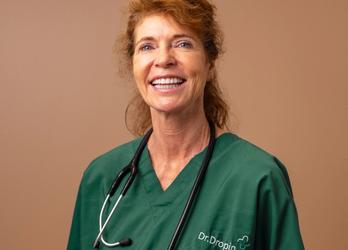
General eye examinations
Our ophthalmologists carry out thorough examinations to diagnose and treat all eye diseases. Including common vision problems such as nearsightedness, farsightedness, and crooked corneas.
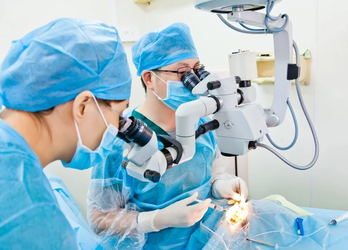
Cataract (Katarakt)
Our experienced eye doctors assess and treat cataracts using modern surgery to optimize vision quality.
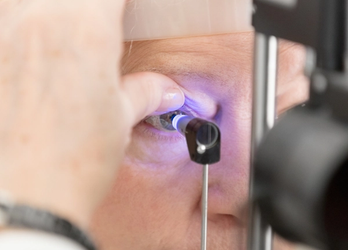
Glaucoma
Our experienced ophthalmologists diagnose and treat glaucoma with the latest and most effective methods.
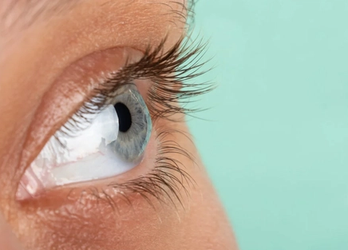
Dry eyes
Experts in dry eyes use the latest methods to alleviate symptoms and enhance eye health.
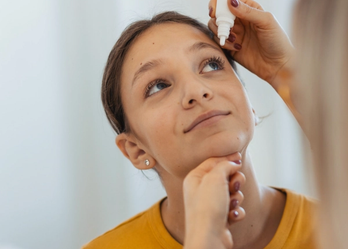
Stye
Diagnose the condition, provide treatments and carry out drainage if necessary.
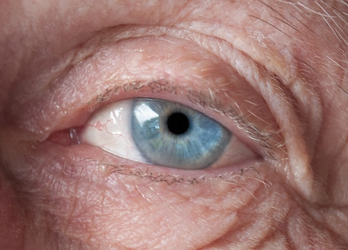
Age-related macular degeneration (AMD)
Our specialists offer advanced treatment for age-related macular degeneration (AMD).
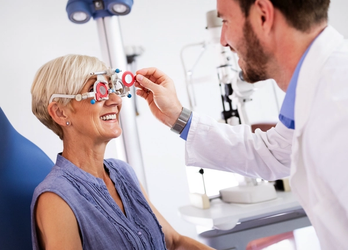
Lens surgery
Advanced lens surgery for vision correction, offering alternatives to glasses and contact lenses.
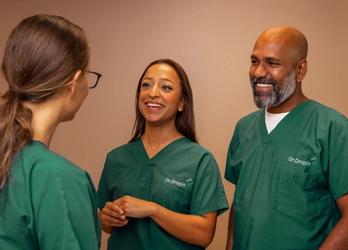
Eyelid Surgery
Surgical correction of droopy eyelids (ptosis) performed by specialists to improve both vision and appearance.
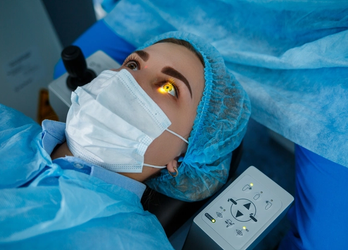
Eye operations
Comprehensive eye surgeries for various conditions, utilizing the latest techniques to ensure the best outcomes.
The ophthalmologists can be safely recommended
- 1000+
- Patients every month
- 4,9/5⭐️
- Google review
Meet our eye doctors
Norway’s leading experts in eye care. Our specialists in Oslo have extensive experience and offer personalized treatment.
Read more about our ophthalmologists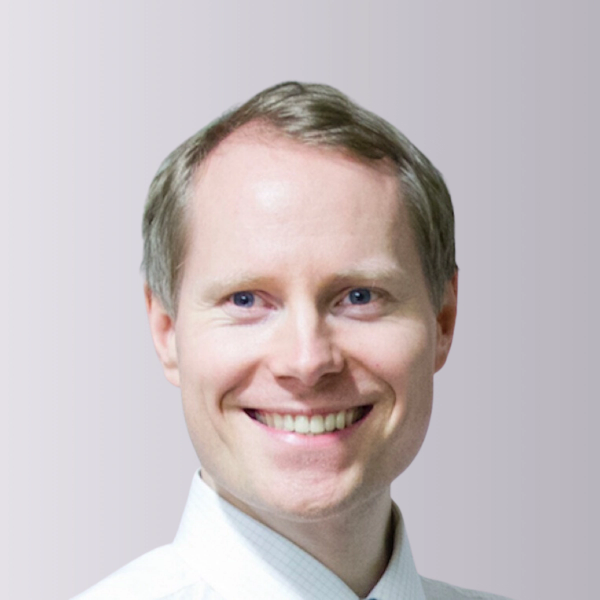
Use your health insurance
We cooperate with all the major insurance companies, so that you can use your health insurance with us.
Read more about how to use your insurance
Our eye clinic
Øyehelseklinikken is centrally located at Majorstuen, Oslo at Sørkedalsveien 10D in the immediate vicinity of public transport and with great parking facilities.
Read more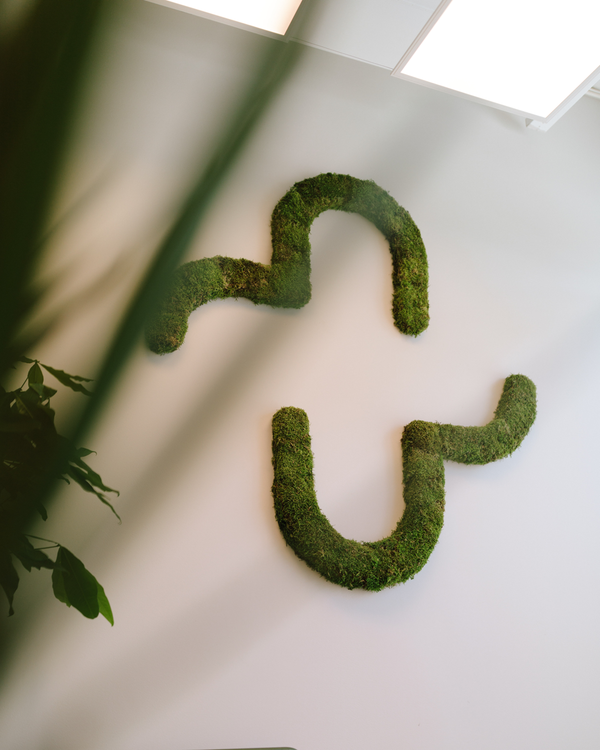
Frequently asked questions
What does an eye doctor do?
An eye doctor, also known as an ophthalmologist, is a medical specialist who diagnoses and treats eye diseases and vision problems. They perform everything from vision tests to surgical procedures such as cataract surgery and treatment of eyelid disorders.
What does an eye doctor do?
An eye doctor, also known as an ophthalmologist, is a medical specialist who diagnoses and treats eye diseases and vision problems. They perform everything from vision tests to surgical procedures such as cataract surgery and treatment of eyelid disorders.
When should I see an eye doctor?
You should see an eye doctor if you experience sudden vision loss, persistent eye pain, blurry vision, flashes of light, floaters in your vision, or if you have a known eye disease that requires follow-up, such as glaucoma or age-related macular degeneration.
When should I see an eye doctor?
You should see an eye doctor if you experience sudden vision loss, persistent eye pain, blurry vision, flashes of light, floaters in your vision, or if you have a known eye disease that requires follow-up, such as glaucoma or age-related macular degeneration.
What is the difference between an optometrist and an eye doctor?
An optometrist is a specialist who performs vision tests and prescribes glasses and contact lenses, while an eye doctor is a physician who can diagnose and treat eye diseases, including performing surgical procedures.
What is the difference between an optometrist and an eye doctor?
An optometrist is a specialist who performs vision tests and prescribes glasses and contact lenses, while an eye doctor is a physician who can diagnose and treat eye diseases, including performing surgical procedures.
What happens during a general eye exam?
A general eye exam includes an assessment of visual acuity, measurement of eye pressure, examination of the retina, and a check of the overall health of the eye. The eye doctor may also test for color blindness, depth perception, and peripheral vision.
What happens during a general eye exam?
A general eye exam includes an assessment of visual acuity, measurement of eye pressure, examination of the retina, and a check of the overall health of the eye. The eye doctor may also test for color blindness, depth perception, and peripheral vision.
How can I prevent eye diseases?
To prevent eye diseases, you should have regular eye exams, wear sunglasses with UV protection, eat a balanced diet rich in antioxidants, and avoid smoking. People with diabetes should also closely monitor their blood sugar levels to avoid diabetic retinopathy.
How can I prevent eye diseases?
To prevent eye diseases, you should have regular eye exams, wear sunglasses with UV protection, eat a balanced diet rich in antioxidants, and avoid smoking. People with diabetes should also closely monitor their blood sugar levels to avoid diabetic retinopathy.
What are dry eyes, and how is it treated?
Dry eyes occur when your eyes don’t produce enough tears, or when the tears are of poor quality. This can cause discomfort, burning, and blurred vision. Treatment includes artificial tears, special eye drops, or in some cases, minor surgical procedures.
What are dry eyes, and how is it treated?
Dry eyes occur when your eyes don’t produce enough tears, or when the tears are of poor quality. This can cause discomfort, burning, and blurred vision. Treatment includes artificial tears, special eye drops, or in some cases, minor surgical procedures.
What is cataract?
Cataract is an eye disease where the lens of the eye becomes cloudy, leading to impaired vision. Cataracts usually develop slowly and commonly affect older people. The condition can be treated with surgery, where the cloudy lens is replaced with an artificial one.
What is cataract?
Cataract is an eye disease where the lens of the eye becomes cloudy, leading to impaired vision. Cataracts usually develop slowly and commonly affect older people. The condition can be treated with surgery, where the cloudy lens is replaced with an artificial one.
What is age-related macular degeneration (AMD)?
Age-related macular degeneration (AMD) is an eye disease that affects the macula, the central part of the retina, leading to loss of central vision. AMD is the most common cause of vision loss in people over 60. There are two types of AMD: wet and dry.
What is age-related macular degeneration (AMD)?
Age-related macular degeneration (AMD) is an eye disease that affects the macula, the central part of the retina, leading to loss of central vision. AMD is the most common cause of vision loss in people over 60. There are two types of AMD: wet and dry.
How is dry and wet AMD treated?
Dry AMD is often treated with vitamin supplements to slow its progression, while wet AMD can be treated with injections into the eye to stop the growth of abnormal blood vessels. Regular check-ups with an eye doctor are important for monitoring the condition.
How is dry and wet AMD treated?
Dry AMD is often treated with vitamin supplements to slow its progression, while wet AMD can be treated with injections into the eye to stop the growth of abnormal blood vessels. Regular check-ups with an eye doctor are important for monitoring the condition.
What is glaucoma, and why is it dangerous?
Glaucoma is a group of eye diseases that damage the optic nerve, often due to high pressure in the eye. Glaucoma can lead to permanent vision loss if not treated. Regular eye exams are crucial for early detection and treatment.
What is glaucoma, and why is it dangerous?
Glaucoma is a group of eye diseases that damage the optic nerve, often due to high pressure in the eye. Glaucoma can lead to permanent vision loss if not treated. Regular eye exams are crucial for early detection and treatment.
What are dry eyes?
Dry eyes occur when your eyes don’t produce enough tears, or when the tears are of poor quality, leading to discomfort, burning, and blurred vision. Dry eyes can significantly impact your quality of life if not properly treated.
What are dry eyes?
Dry eyes occur when your eyes don’t produce enough tears, or when the tears are of poor quality, leading to discomfort, burning, and blurred vision. Dry eyes can significantly impact your quality of life if not properly treated.
What causes dry eyes?
Causes of dry eyes can include aging, hormonal changes, prolonged screen use, certain medications, and environmental factors such as dry air or wind. Dry eyes can also be caused by underlying medical conditions such as blepharitis or autoimmune diseases.
What causes dry eyes?
Causes of dry eyes can include aging, hormonal changes, prolonged screen use, certain medications, and environmental factors such as dry air or wind. Dry eyes can also be caused by underlying medical conditions such as blepharitis or autoimmune diseases.
How are dry eyes treated at the Dry Eye Clinic?
At the Dry Eye Clinic, we offer personalized treatment based on the latest scientific research. Treatment options include artificial tears, special eye drops, light therapy, and in some cases, minor surgical procedures to improve tear quality and relieve symptoms.
How are dry eyes treated at the Dry Eye Clinic?
At the Dry Eye Clinic, we offer personalized treatment based on the latest scientific research. Treatment options include artificial tears, special eye drops, light therapy, and in some cases, minor surgical procedures to improve tear quality and relieve symptoms.
How can I tell if I have dry eyes?
Common symptoms of dry eyes include burning, itching, a gritty sensation in the eyes, redness, and blurred vision. If you experience any of these symptoms over an extended period, it is recommended that you consult a specialist for a thorough examination.
How can I tell if I have dry eyes?
Common symptoms of dry eyes include burning, itching, a gritty sensation in the eyes, redness, and blurred vision. If you experience any of these symptoms over an extended period, it is recommended that you consult a specialist for a thorough examination.
What makes the Dry Eye Clinic unique?
The Dry Eye Clinic is the only specialized clinic in the Nordic region for the diagnosis and treatment of dry eyes and eye allergies. We are co-located with the Eye Health Clinic, and many of our eye doctors hold PhDs and publish research on dry eyes. This enables us to offer treatment based on the most up-to-date scientific literature.
What makes the Dry Eye Clinic unique?
The Dry Eye Clinic is the only specialized clinic in the Nordic region for the diagnosis and treatment of dry eyes and eye allergies. We are co-located with the Eye Health Clinic, and many of our eye doctors hold PhDs and publish research on dry eyes. This enables us to offer treatment based on the most up-to-date scientific literature.
Can dry eyes worsen without treatment?
Yes, if left untreated, dry eyes can worsen over time, potentially leading to more serious eye problems such as corneal damage or chronic discomfort. Early treatment can prevent the condition from progressing.
Can dry eyes worsen without treatment?
Yes, if left untreated, dry eyes can worsen over time, potentially leading to more serious eye problems such as corneal damage or chronic discomfort. Early treatment can prevent the condition from progressing.
What diagnostic methods are used for dry eyes?
At the Dry Eye Clinic, we use advanced diagnostic tools to assess tear production, tear film quality, and eyelid function. This includes testing tear quantity, evaporation time, and analyzing tear components to determine the best treatment for each patient.
What diagnostic methods are used for dry eyes?
At the Dry Eye Clinic, we use advanced diagnostic tools to assess tear production, tear film quality, and eyelid function. This includes testing tear quantity, evaporation time, and analyzing tear components to determine the best treatment for each patient.
Can dry eyes be permanently treated?
Treatment for dry eyes focuses on relieving symptoms and improving quality of life. While some cases may require ongoing treatment, many patients experience significant improvement with proper care and follow-up.
Can dry eyes be permanently treated?
Treatment for dry eyes focuses on relieving symptoms and improving quality of life. While some cases may require ongoing treatment, many patients experience significant improvement with proper care and follow-up.
How can I book an appointment at the Dry Eye Clinic?
To book an appointment at the Dry Eye Clinic, you can contact us directly by phone or use our online booking system here. We offer comprehensive examinations and personalized treatment plans to ensure the best possible outcomes for our patients.
How can I book an appointment at the Dry Eye Clinic?
To book an appointment at the Dry Eye Clinic, you can contact us directly by phone or use our online booking system here. We offer comprehensive examinations and personalized treatment plans to ensure the best possible outcomes for our patients.
What is AMD?
AMD is an eye disease that affects sharp vision in the center of the visual field, making it difficult to read, drive, and recognize faces.
What is AMD?
AMD is an eye disease that affects sharp vision in the center of the visual field, making it difficult to read, drive, and recognize faces.
What are the symptoms of AMD?
Distorted or blurred vision in the center of the visual field, difficulty seeing details, dark spots in the visual field.
What are the symptoms of AMD?
Distorted or blurred vision in the center of the visual field, difficulty seeing details, dark spots in the visual field.
How is AMD treated?
The treatment depends on the type of AMD. Dry AMD can be slowed down with dietary supplements and lifestyle changes. Wet AMD can be treated with injections in the eye or laser treatment.
How is AMD treated?
The treatment depends on the type of AMD. Dry AMD can be slowed down with dietary supplements and lifestyle changes. Wet AMD can be treated with injections in the eye or laser treatment.
What is the difference between dry and wet AMD?
Dry AMD is the most common form and is caused by the gradual breakdown of cells in the macula. Wet AMD is less common but more severe and is caused by abnormal growth of blood vessels under the retina.
What is the difference between dry and wet AMD?
Dry AMD is the most common form and is caused by the gradual breakdown of cells in the macula. Wet AMD is less common but more severe and is caused by abnormal growth of blood vessels under the retina.
Can AMD lead to blindness?
Although AMD can lead to severe vision loss, it rarely causes complete blindness. Early diagnosis and treatment are important for preserving vision.
Can AMD lead to blindness?
Although AMD can lead to severe vision loss, it rarely causes complete blindness. Early diagnosis and treatment are important for preserving vision.
What is glaucoma?
Glaucoma is an eye disease that damages the optic nerve, often due to high pressure in the eye.
What is glaucoma?
Glaucoma is an eye disease that damages the optic nerve, often due to high pressure in the eye.
What are the symptoms of glaucoma?
Glaucoma often develops without noticeable symptoms in the early stages. Later, it can lead to loss of peripheral vision and eventually tunnel vision.
What are the symptoms of glaucoma?
Glaucoma often develops without noticeable symptoms in the early stages. Later, it can lead to loss of peripheral vision and eventually tunnel vision.
How is glaucoma treated?
Glaucoma can be treated with eye drops, laser treatment, or surgery to reduce pressure in the eye and prevent further damage to the optic nerve.
How is glaucoma treated?
Glaucoma can be treated with eye drops, laser treatment, or surgery to reduce pressure in the eye and prevent further damage to the optic nerve.
Are there different types of glaucoma?
Yes, there are two main types of glaucoma: open-angle glaucoma and angle-closure glaucoma. Open-angle glaucoma is the most common type and develops slowly over time. Angle-closure glaucoma is less common but can be an acute medical emergency.
Are there different types of glaucoma?
Yes, there are two main types of glaucoma: open-angle glaucoma and angle-closure glaucoma. Open-angle glaucoma is the most common type and develops slowly over time. Angle-closure glaucoma is less common but can be an acute medical emergency.
How can I know if I have glaucoma?
Regular eye exams with an ophthalmologist are important for early detection of glaucoma, especially if you have risk factors such as older age, family history of glaucoma, or certain medical conditions.
How can I know if I have glaucoma?
Regular eye exams with an ophthalmologist are important for early detection of glaucoma, especially if you have risk factors such as older age, family history of glaucoma, or certain medical conditions.
What are cataracts?
Cataracts are a common eye condition where the lens of the eye becomes cloudy, leading to blurred vision.
What are cataracts?
Cataracts are a common eye condition where the lens of the eye becomes cloudy, leading to blurred vision.
What are the symptoms of cataracts?
Blurred vision, glare, faded color vision, difficulty seeing at night.
What are the symptoms of cataracts?
Blurred vision, glare, faded color vision, difficulty seeing at night.
How are cataracts treated?
Cataracts are usually treated with surgery where the cloudy lens is replaced with an artificial lens.
How are cataracts treated?
Cataracts are usually treated with surgery where the cloudy lens is replaced with an artificial lens.
Who is most at risk of developing cataracts?
Cataracts are most common in older people, but can also occur due to other factors such as eye injuries, diabetes, or long-term use of certain medications.
Who is most at risk of developing cataracts?
Cataracts are most common in older people, but can also occur due to other factors such as eye injuries, diabetes, or long-term use of certain medications.
How can I prevent cataracts?
While there is no guarantee to prevent cataracts, you can reduce your risk by protecting your eyes from sunlight.
How can I prevent cataracts?
While there is no guarantee to prevent cataracts, you can reduce your risk by protecting your eyes from sunlight.
Does Dr. Dropin have a private ophthalmologist in Oslo?
Yes, Dr. Dropin has a private ophthalmologist in Oslo. Our Eye Health Clinic is centrally located at Majorstuen and offers a wide range of eye services, including:
General eye examinations: To check your general eye health and vision.
Treatment of eye diseases: such as cataracts, glaucoma, AMD and dry eyes.
Surgical interventions: Including cataract surgery and other eye surgeries.
You can easily book an appointment online or via the Dr.Dropin app. We have experienced ophthalmologists and modern equipment to give you the best possible treatment.
Does Dr. Dropin have a private ophthalmologist in Oslo?
Yes, Dr. Dropin has a private ophthalmologist in Oslo. Our Eye Health Clinic is centrally located at Majorstuen and offers a wide range of eye services, including:
General eye examinations: To check your general eye health and vision.
Treatment of eye diseases: such as cataracts, glaucoma, AMD and dry eyes.
Surgical interventions: Including cataract surgery and other eye surgeries.
You can easily book an appointment online or via the Dr.Dropin app. We have experienced ophthalmologists and modern equipment to give you the best possible treatment.
Private ophthalmologist Oslo | Ophthalmologist Oslo | Dr. Dropin Ophthalmologist Oslo | Quick appointment with an ophthalmologist Oslo | Appointment with an ophthalmologist Oslo | Ophthalmology appointment Oslo | Eye clinic Oslo | Best ophthalmologist Oslo | Find an ophthalmologist Oslo | Book an ophthalmologist appointment Oslo | Ophthalmologist Majorstuen | Cataract surgery Oslo | Glaucoma treatment Oslo | Dry eyes treatment Oslo | AMD treatment Oslo | Contact lens fitting Oslo | Experienced ophthalmologists Oslo | Modern eye clinic Oslo | Centrally in Oslo | Online booking ophthalmologist Oslo.